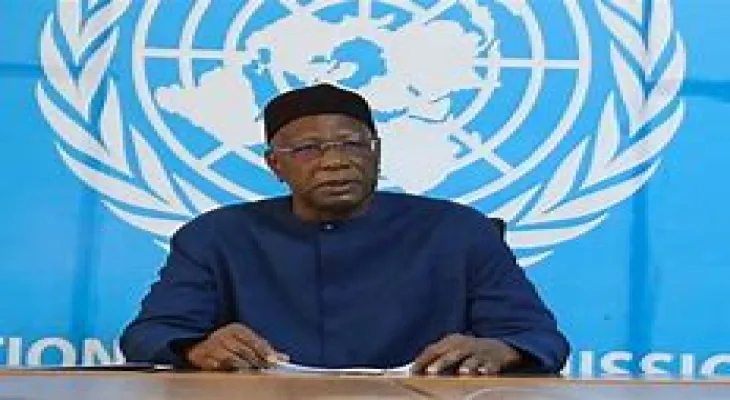Search here
Newspaper
Search here

Arab Canada News
News

Published: July 19, 2023
The Libyan crisis is witnessing a new escalation following the arrest of a number of Libyan activists, as well as some former ministers and officials, which has led to heightened tensions among the tribes and families of the detainees and kidnapped officials and elites.
This comes in the context of anticipation for the holding of Libyan presidential and parliamentary elections, which the UN envoy to Libya, Abdullah Batili, is striving to conduct before the end of the current year as part of the UN initiative he presented to the Security Council last February to break the political stalemate that Libya has been suffering from for years.
The incidents of enforced disappearances have led the United Nations to call for an immediate halt to these arrests and enforced disappearances that have occurred among Libyan elites and public figures, an issue that has increased its pace in recent days, especially after the widening gap between Prime Minister Abdul Hamid Dbeibeh and Khaled Mishri, the president of the High Council of State, with Turkey's attempts to bring them closer proving unsuccessful.
The United Nations has warned of the repercussions of kidnapping public figures in Libya and called for the swift release of the detained public figures, as well as refraining from escalation, including the use of incitement speeches by some Libyan security bodies. The UN condemned the ongoing kidnappings, enforced disappearances, and arrests by security authorities in Libya.
On Wednesday, the security forces arrested former Minister of Finance Faraj Boumtari at Mitiga International Airport and took him to an unknown location, and information revealed that several members of the High Council of State were also prevented from traveling at Mitiga Airport.
The UN mission warned that the escalation of these events increases political and social unrest among the tribes and families of Libya, especially since the "Zuwiya" tribe, to which the former Minister of Finance "Boumtari" belongs, threatened to close the oil fields in their areas of influence in the south of the country if the authorities in Tripoli do not release him as soon as possible.
The UN mission called for the necessity of ending all forms of arbitrary detention and illegal kidnapping and bringing the perpetrators of such acts to justice.
The threat from some tribes to close the Libyan oil fields has sparked strong global reactions and widespread Western interest, prompting several Western countries to condemn any hostile actions that threaten the flow of oil from Libyan oil fields amid the current high global oil prices. The UN also expressed concern about the closure of oil fields in response to the kidnapping of some Libyan figures.
The UN indicated that oil represents the main source of income for the Libyan people, and the closure of the oil fields should be ended immediately, with it not being used as a tool for political bargaining in internal conflicts.
For his part, UN envoy Abdullah Batili noted that there is a French-Canadian consensus on the necessity of settling the main Libyan disputes and the need for Libyan parties to agree on executable electoral laws. Everyone emphasized the need to refrain from any unilateral steps and confirmed their commitment to reaching an agreement on the main contentious issues.
Batili also rejected any roadmap aimed at delaying the Libyan elections and intensified his meetings with Libyan officials in an attempt to salvage his initiative to hold general elections before the end of the current year, indicating that any roadmap aiming to disrupt the electoral process would not be acceptable.
Batili held an important meeting last week with Khaled Mishri, the president of the High Council of State, where they discussed ways to enhance the electoral process through a consultative mechanism. The meeting also addressed the need to work on addressing the gaps in the proposed electoral laws to ensure their applicability while being agreeable with other parties, so as not to serve as an additional excuse for delaying the elections.
Batili announced through his social media pages that he agreed with the Libyan figures he met about the need for the relevant Libyan institutions and key parties to meet and constructively participate in reaching a compromise on all political contentious issues.
Khaled Mishri, the president of the High Council of State, stated that his meeting with the UN envoy discussed the anticipated electoral process using a consultative mechanism aimed at achieving free and fair elections, in addition to some problems and difficulties that may face the electoral laws and ways to mitigate them.
Among the important figures Batili met with last week was Field Marshal Khalifa Haftar, the commander of the Libyan National Army, and Mohamed Menfi, the president of the Libyan Presidential Council, with whom he discussed the achievements made by the Presidential Council at the political, economic, and military levels.
Comments